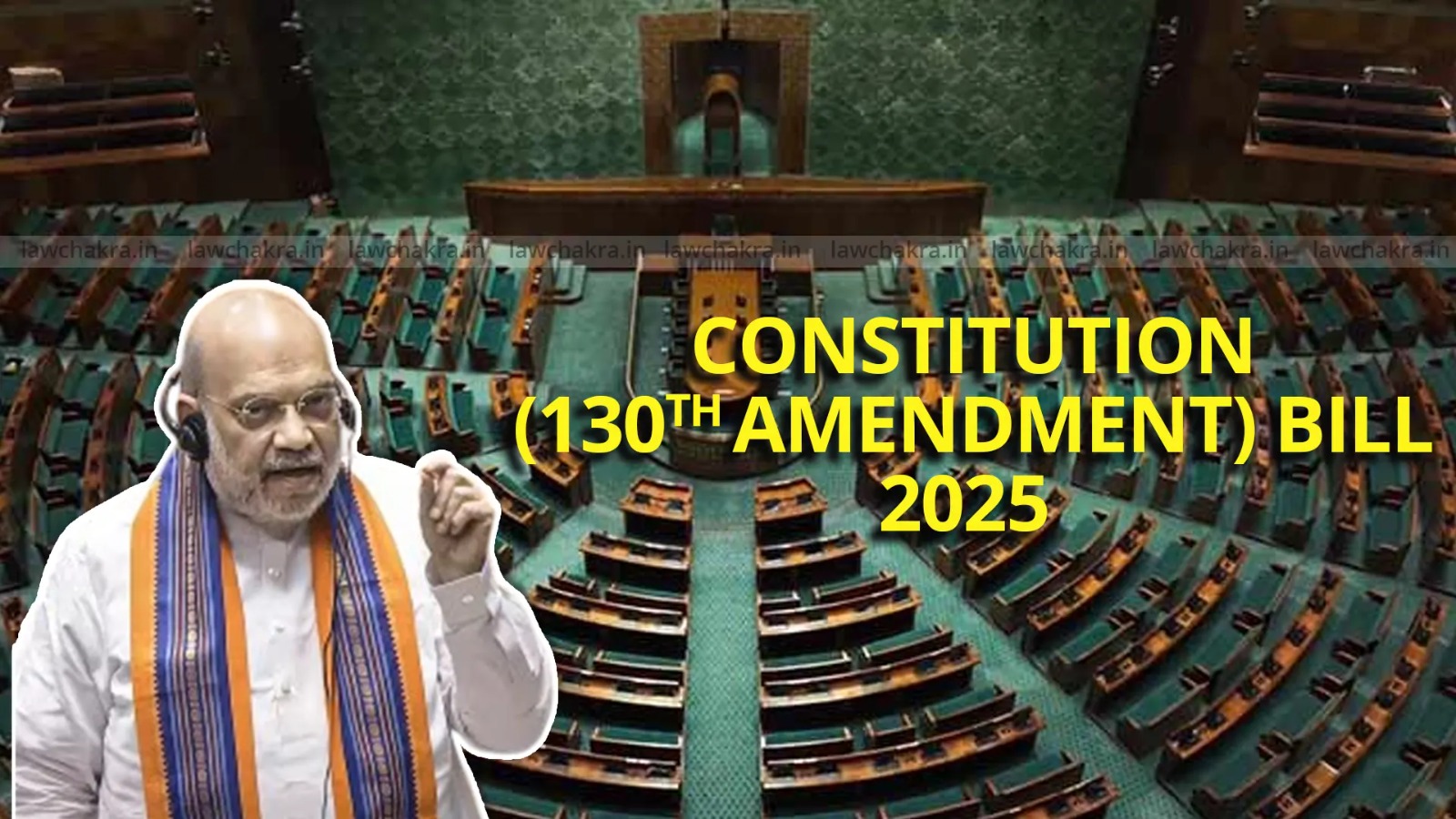 Image Source: LawChakra
Image Source: LawChakra
In a landmark move, Union Home Minister Amit Shah introduced the 130th Constitutional Amendment Bill in Lok Sabha on August 20, 2025, proposing an unprecedented provision that can automatically remove the Prime Minister, Chief Ministers, and other ministers from office if they are detained or arrested for serious criminal offences lasting 30 consecutive days or more.
This amendment would make India the first democracy globally to institute a pre-conviction automatic disqualification clause for top elected officials, a significant departure from other democracies where political processes or judicial decisions typically govern removal.
Key Provisions of the Bill
The Bill proposes to amend Articles 75, 164, and 239AA of the Indian Constitution, which govern the appointment and tenure of the Union Council of Ministers, State Councils of Ministers, and governance of Delhi respectively:
A minister (including PM, CMs, and other ministers) arrested and detained for 30 consecutive days on charges punishable by imprisonment of five years or more shall be automatically removed on the 31st day in custody.
At the Union level, the President must remove the minister on the advice of the Prime Minister. In states, the Governor will act on the advice of the Chief Minister, and in Delhi, the President will act on the advice of the Chief Minister.
If the legal advice for removal is not given within the prescribed timeframe, the minister automatically ceases to hold office from the day after the 30th day.
The Bill allows for reappointment once the minister is released from custody, preventing permanent disqualification on mere arrest.
Political and Democratic Implications
The Bill sparked intense debates in the Lok Sabha with the Opposition vehemently criticizing it as draconian and a threat to democracy. Critics fear the law could be weaponized by ruling parties to target political opponents through misuse of investigative agencies, potentially destabilizing state governments.
West Bengal Chief Minister Mamata Banerjee called it a “step towards a super-Emergency” and “a death knell to Indian democracy and federalism”. AIMIM leader Asaduddin Owaisi opposed the Bill, citing concerns over separation of powers and misuse of executive authority.
The government, meanwhile, defended the Bill as a necessary measure to elevate moral standards, ensuring that officials facing serious criminal charges do not continue to hold public office, thereby preserving constitutional trust and good governance.
Unprecedented Nature in Global Democracy
If enacted, India would be unique in mandating automatic and immediate removal without conviction but merely on the basis of arrestee status for 30 days or more. Most democracies rely on political accountability—through votes, internal party mechanisms, or judicial verdicts—to determine a leader’s fitness to hold office. This Bill introduces a prophylactic, pre-emptive removal mechanism unprecedented for a parliamentary democracy.
Legal Mechanics and Political Context
Legally, the Bill introduces sub-clauses 75(5A), 164(4A), and 239AA(4A) to the Constitution. Politically, passing such an amendment requires a two-thirds majority in Parliament, a feat that currently faces stiff opposition without consensus from key parties like Congress.
The Bill notably follows controversies such as the 2023 arrest of Tamil Nadu minister V Senthil Balaji, highlighting gaps in regulating officeholders accused of serious crimes but not convicted.
Possible Outcomes and Road Ahead
While the Bill is in committee review following fiery parliamentary debates, its implications continue to fuel discussions about governance, judicial fairness, political accountability, and individual rights under arrest in democratic India.
The possibility of automatic removal could incentivize faster judicial processes or prompt greater caution in the use of custodial investigations against elected officials. However, concerns about misuse remain a significant flashpoint, ensuring extended political discourse before potential enactment.
Relevant Sources: Moneycontrol, PRS India, The Print, NDTV, Indian Express
Advertisement
Advertisement






